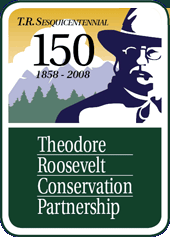Sportsmen Urge USDA Intervention in Colorado Roadless Plan
Hunting and angling groups call on Sec. Vilsack to ensure Colorado roadless rule
sustains important fish and wildlife habitat.

WASHINGTON – -(AmmoLand.com)- An assemblage of prominent sportsmen-conservationist groups today pointedly criticized a proposed plan for management of Colorado’s national forest roadless areas and asked U.S. Department of Agriculture Secretary Tom Vilsack to intervene in the rule-making process until fundamental problems with the draft plan can be resolved.
Colorado Backcountry Hunters and Anglers, Colorado Trout Unlimited, the Theodore Roosevelt Conservation Partnership and Trout Unlimited’s Sportsmen’s Conservation Project expressed significant concerns about the ability of the proposed Colorado roadless rule to sustain important fish and wildlife habitat. The groups stressed that finalization of the Colorado roadless rule should be deferred until key officials are appointed at the U.S. Department of Agriculture and U.S. Forest Service and a review of the proposed rule can be undertaken.
“The proposed Colorado roadless rule does not adequately conserve Colorado’s roadless areas and can be substantially improved and clarified,” said Joel Webster, TRCP associate director of campaigns. “Colorado’s backcountry areas are world-class, and hunters and anglers have a huge stake in assuring their responsible management.”
Organized sportsmen have been meeting with representatives from the state and U.S. Forest Service throughout the development of the Colorado roadless rule, which was initiated in 2007 by Colorado Gov. Bill Ritter. Contrary to the governor’s stated intentions, a draft rule released by the U.S. Forest Service in 2008 is considerably weaker than the national roadless rule and includes exceptions allowing energy drilling, coal development, major water projects, transmission corridors and timber cutting in valuable public-lands fish and wildlife habitat.
“Trout Unlimited has been at the table with other sportsmen’s groups negotiating earnestly with both the state and the Forest Service throughout the Colorado roadless rule process,” said David Petersen, TU Colorado field director for sportsmen’s conservation projects. “Consequently, we are deeply disappointed that at this terminal stage the proposed rule continues to propagate undesirable management practices and paradigms. As currently written, the proposed rule is rife with exceptions that could adversely affect public-lands hunting, fishing and watersheds, and it largely ignores the clearly expressed desires of Colorado sportsmen – as well as the Colorado Division of Wildlife and an overwhelming majority of citizen input asking for maximum roadless area protections.”
The sportsmen point to specific examples of overly permissive language in the proposed rule, including the following:
- excessive discretion and allowances for timber cutting and road building in the backcountry, far removed from forest-edge communities
- expanded utility and water conveyance allowances
- roadless coal mining provisions (especially in the Priest Mountain area).
“Exceptions allowing road building and development in roadless areas must be narrowly and clearly defined in order to sustain the economic boost provided by Colorado’s backcountry,” said David Lien, co-chairman of Colorado BHA. “Especially in these troubling financial times, our towns and rural communities rely on the income provided by sportsmen now more than ever.”
Colorado’s 345 roadless areas comprise approximately 4.4 million acres. Roadless areas provide superior habitat to species prized by sportsmen, including elk, mule deer and native Colorado cutthroat trout, and form the core of the more than $1 billion hunter and anglers contribute annually to Colorado’s economy.
“To favorably resolve the Colorado rule, its problems must be addressed so that roadless area characteristics are conserved at a level comparable to the national roadless rule,” said David Nickum, executive director of Colorado TU. “Our groups want to conserve roadless values in the places where Americans hunt and fish – and ensure that our backcountry traditions are upheld for future generations to experience and enjoy.”
Read the sportsmen’s letter to Sec. Vilsack regarding the Colorado roadless rule.
